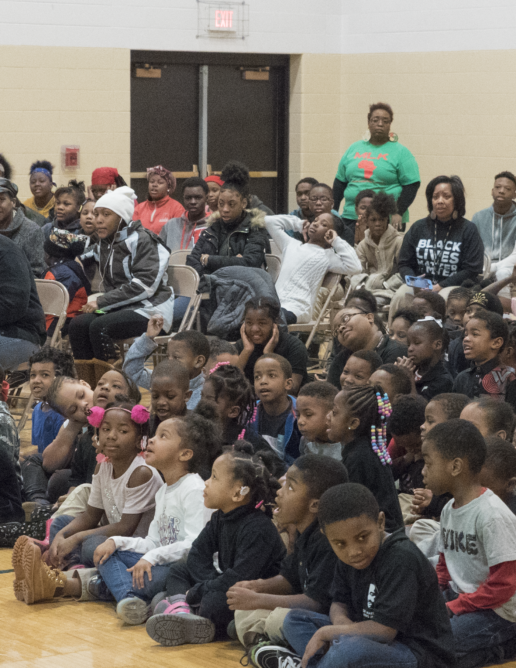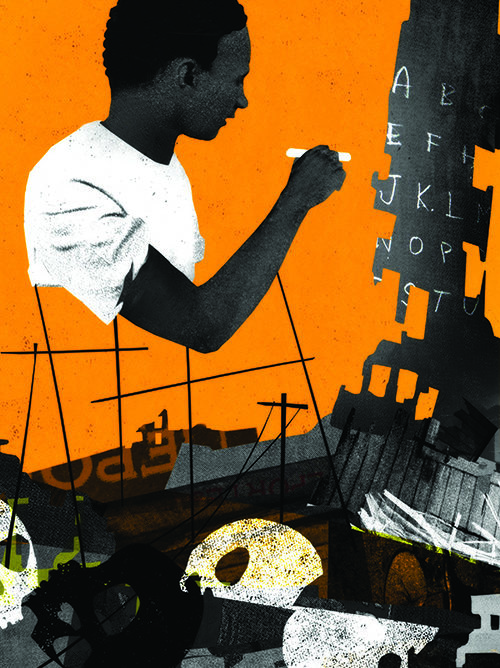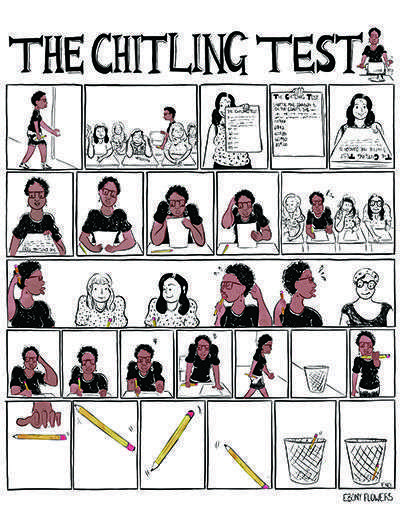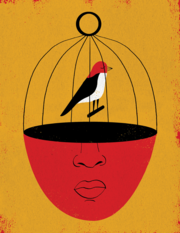No Child Left Untested: Closing the Door on Our Kids
This content is restricted to subscribers

This content is restricted to subscribers

Reclaiming the democratic vision of small school reform.
How testing and top-down reform can undermine small schools.

The Gates’ $735 million have made them key players in small school reform.

Small schools reform is often accompanied by familiar buzzwords that can mean different things to different people (sometimes called stakeholders”).”

NCLB’s provisions give military recruiters access to student contact information

Making lemonade from NCLB lemons.

Republicans deliberately undermining Head Start.

High-stakes tests have not only failed to achieve racial equality in schooling, they’ve also made it worse for students of color.

While high-profile tests like the SAT are problematic, Karp argues that we need to end the routine standardized tests that plague students and teachers.

There’s no need for teachers in other cities to reinvent the wheel: study Los Angeles.

In an era when a U.S. president calls Haiti and African nations shithole countries; a time when hate crimes are on the rise; a time when Black students are suspended at four times the rate of white students; and a time when we have lost 26,000 Black teachers since 2002, building a movement for racial justice in the schools is an urgent task. Black lives will matter at schools only when this movement becomes a mass uprising that unites the power of educator unions and families to transform public education.

After teachers label her son’s behavior as problematic and try to have him evaluated by a psychologist, a Black parent uncovers why schools fail Black boys and begins organizing her community to challenge practices detrimental to them.

Union activists have been tirelessly organizing with communities, recognizing that these are the same stories of communities across the United States. The fight will go on, even as disaster capitalism on steroids wants to destroy the public education system.

There are few public schools receiving as much attention these days as LeBron James’ I Promise School in Akron, Ohio — and it’s because it’s just that: a public school.

Immediately after an earthquake devastated Haiti in 2010, corporations swooped in to capitalize on the destruction and to privatize public enterprises. Hagopian explores how disaster capitalism hit the education system and what the effects were on students and families.

An educator reflects on how the education system has continually tested her Blackness from grade school through professional development, and argues that we need more Black spaces to nurture brilliance.
NCTQ, which claims to “provide an alternative national voice to existing teacher organizations and to build the case for a comprehensive reform agenda that would challenge the current structure and regulation of the profession,” was created by the Thomas B. Fordham Foundation in 2000 and incorporated in 2001 as a policy response to a perception that colleges of education were not adequately preparing teachers. According to education historian and NCTQ critic Diane Ravitch, the conservative members of the Thomas B. Fordham foundation perceived teacher training as problematic due to an overemphasis on social justice and a lack of focus on basic academic skills and abilities. Thus, NCTQ was originally founded as an entity through which to encourage alternative certification and circumvent colleges of education. Indeed, early on, NCTQ was closely connected to ABCTE (American Board for the Certification of Teacher Excellence), which created a series of tests that potential teachers could pass in order to bypass teacher education programs altogether by paying $1,995.00.
“We have something to tell you but we’re worried about getting you too involved. We don’t want to get you in trouble,” Baylee and Zaida whispered excitedly as they wiggled through the crack in my classroom door on my prep. I was confused to see them in such high spirits because earlier in the day they had been crushed by news from our administration. For more than two months they had been part of our Restorative Justice club that had been planning two half-day workshops around women empowerment for female-identifying students and toxic masculinity for male-identifying students. The club of 11 demographically diverse students had been urging adults in our building to do something about sexual harassment since October, when they made sexual assault and harassment their Restorative Justice club theme of the month and visited 9th grade classes to lead circles on the topic. This opened up a door for 9th graders to continue to reach out to upperclassmen about the harassment they were facing.

The second installment of our new environmental justice column focuses on one part of a resolution passed by the Portland, Oregon, school board that mandates the school district not use text material that doubts “the severity of the climate crisis or its root in human activities.”

It has always been an educator’s responsibility to act in solidarity with vulnerable students. But with President Donald Trump’s September declaration that he will end DACA, we are called on to be more audacious, more resolute, and more imaginative in our solidarity with the 800,000 undocumented young people who now face a frightening uncertainty about their future in the United States.

An education researcher explores “no-excuses” discipline policies and the rate of out-of-school suspensions at charter schools in Denver and around the nation. “Democracy is healthiest when our educational institutions reflect our best virtues — creativity, joy, and growth. We must strengthen our oversight over no-excuses charter schools, thereby ensuring that no child in that city — or our country — is subjected to policies that could have been culled from one of Denver’s neighboring prisons.”
I was just about to finish my second year teaching 2nd grade. It was the first week of June and school was quickly coming to a close. The sun was out and everyone’s energy was extraordinarily high. We were in Seattle after all; when the sun comes around, you rejoice. One morning that week I came to work and noticed I had an email from a parent. This was a parent I had a good relationship with, and she often checked in to see how her daughter was doing. But this email was different. The mother explained that her daughter had been cornered at recess the previous day by some boys who were also 2nd graders. The boys grabbed, groped, and humped her. They told her they were going to have sex with her. Her daughter told them to stop and to leave her alone, but they persisted. As this sweet one told her story of shame, confusion, and hurt to her family later that day, she became so upset that she threw up in the car. Her mother knew this wasn’t a miscommunication or misunderstanding.
During a recent conversation, a former high school classmate said, “I always wondered why you left Eureka. I heard that something shameful happened, but I never knew what it was.”
Yes, something shameful happened. My former husband beat me in front of the Catholic Church in downtown Eureka. He tore hunks of hair from my scalp, broke my nose, and battered my body. It wasn’t the first time during the nine months of our marriage. When he fell into a drunken sleep, I found the keys he used to keep me locked inside and I fled, wearing a bikini and a bloodied white fisherman’s sweater. For those nine months I had lived in fear of his hands, of drives into the country where he might kill me and bury my body. I lived in fear that if I fled, he might harm my mother or my sister.
I carried that fear and shame around for years. Because even though I left the marriage and the abuse, people said things like “I’d never let some man beat me.” There was no way to tell them the whole story: How growing up and “getting a man” was the goal, how making a marriage work was my responsibility, how failure was a stigma I couldn’t bear.
Using the experience of high school exit testing in New Jersey as an example, Stan Karp analyzes the gross negative impact of these high-stakes tests on students and schools.